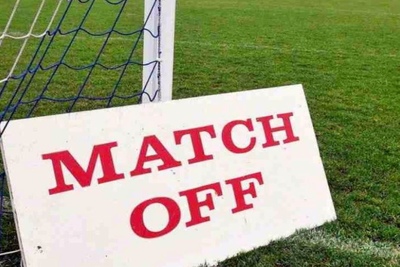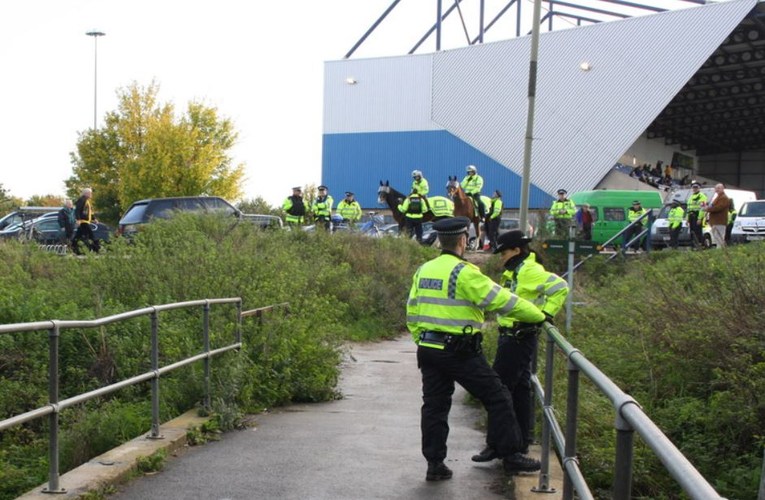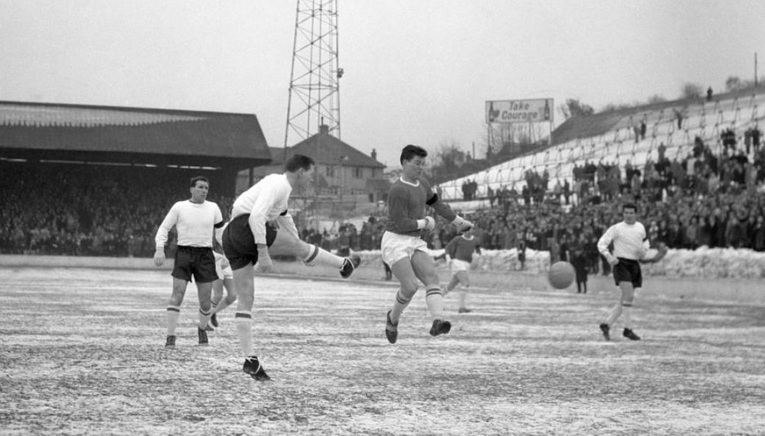We’ve already covered some of the reasons why football matches are occasionally abandoned, but what about the games that never manage to get underway in the first place?
Why is that some matches are postponed? Are the reasons always straightforward, or is it sometimes a little more complicated than that?
Here we’ll have a look at some of the bizarre and interesting reasons that games can get postponed, as well as explaining the more mundane reasons why a ball is not kicked when it’s supposed to be.
We’ll give you some specific examples and also some of the times when postponements meant the league itself was put out of whack…
The Weather
 Much like with games that get abandoned after they’ve already started, one of the main reasons matches get postponed until a later date is adverse weather. Lower league matches are, ore often than not, the ones that suffer the most with bad weather postponements for the simple reason that their facilities are not as good as those available to the top teams.
Much like with games that get abandoned after they’ve already started, one of the main reasons matches get postponed until a later date is adverse weather. Lower league matches are, ore often than not, the ones that suffer the most with bad weather postponements for the simple reason that their facilities are not as good as those available to the top teams.
Match officials are required to inspect the pitch before the game and decide whether it is playable or not. For lower league sides, who might be playing at grounds with insufficient pitch drainage, this inspection can be a concerning time. Large puddles that haven’t drained and are obstructing the field of play, for example, might be a cause for concern for match referees who may choose to delay the game to allow for further drainage or, in the worst case scenario, postpone the match for a later date.
In January of 2016 eight games were postponed in Scotland because of snow and ice. Some of this had settled on the pitches and wouldn’t have been able to be cleared in time for kick-off, whilst in other incidents it was actually the police that recommended postponing the games because the conditions around the stadium were treacherous underfoot for the supporters heading to the match.
Other Commitments
 One of the most run-of-the-mill reasons why a match might be postponed is because one of the clubs that was due to play in it has another commitment that must take precedent. The most common example of such an occasion is when a team is involved in the FA Cup and is scheduled to play a game in that competition at the same time as they should be playing a league game.
One of the most run-of-the-mill reasons why a match might be postponed is because one of the clubs that was due to play in it has another commitment that must take precedent. The most common example of such an occasion is when a team is involved in the FA Cup and is scheduled to play a game in that competition at the same time as they should be playing a league game.
Because FA Cup games have to be played within a specific timeframe the early part of the competition, when a large number of clubs are involved in it, tends to get full weekends devoted to it. As the competition goes on, however, less teams are involved as more and more are knocked out. This means that the Premier League can schedule games over the same weekend as most teams will be free to play.
The problems arise, however, when a team is scheduled to play a match against a team that is still in the FA Cup. Let’s say, for example, that Manchester City are down to play Liverpool in the league, but Liverpool are still in the cup and City have been knocked out. United are free to play the game but Liverpool won’t be able to, meaning that it has to be postponed.
The same thing can also happen if FA Cup games are drawn and need to go to a replay. The replay may be scheduled for the same night as a league game and, because it needs to be played before the next round of the competition, it will once again take precedent. This delaying of fixtures often leads to what Fantasy Football managers know only too well – double game weeks. This is where teams play two Premier League fixtures in quick succession, on Saturday and then Tuesday for example.
Security Concerns

One of the most worrying reasons for a match being postponed is a security concern. Sadly, this is becoming more and more common in recent times. Obviously football fans are always disappointed when they don’t get to see a game played out, but no one would want to see a game at the expense of their own security. On top of that, the police and football clubs don’t take such decisions likely.
On the 20th of March 2016, for example, a match between Galatasaray and Fenerbaçhe was postponed when Turkish police identified a suspected plot from Islamic State, the terrorist group, to cause an attack on the stadium where the match was taking place in Istanbul similar to the attack in Paris in 2015. Initially it was planned to play the game without supporters present but eventually it was postponed until a different date.
In May of 2016 the final Manchester United home game of the season was postponed when a suspicious bomb-like device was found in Old Trafford about thirty minutes before the game was due to kick-off. The stadium was evacuated and the game was rescheduled for a few days later.
It turned out that the package, which was destroyed by bomb disposal experts, was a training device accidentally left by a security company that had been using the stadium for training exercises involving sniffer dogs.
Affecting The Season

The Manchester United incident meant that their game against Bournemouth actually had to be played after the end of the season. This is almost unheard of, with the final games of the fixture list normally played at exactly the same time to avoid any unfair advantage for any particular team.
It is not completely unheard of, however.
The 1962-1963 First Division season endured severe delays because of what was famously called The Big Freeze. The winter was one of the coldest on record, with lakes and rivers freezing over and even the sea freezing for up to a mile out. Temperatures in some part of the country dropped to as low as minus 19 degrees Centigrade.
This caused a severe delay to the fixture list, meaning that there was a mass fixture congestion issue that resulted in the season finishing significantly later than usual. Everton eventually ran out as winners of the top-flight and Manchester United won their first trophy since the Munich Air Disaster.
